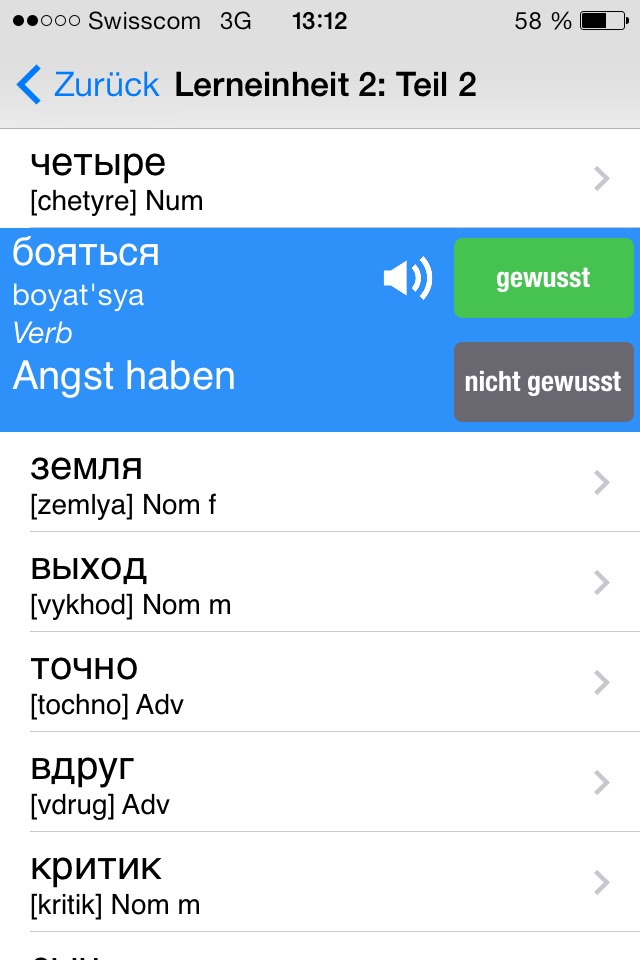
1000 most frequently used Russian words – Vocabulary trainer app for iPhone and iPad
Developer: Stefan Amann
First release : 28 Dec 2013
App size: 15.62 Mb
New product promotional offer 50% discount. App price $1.99 instead of regular price $3.99
Learn the Russian vocabulary the easy way with just 10 minutes effort every day.
Very quickly you will be able to:
• Understand Russian
• Pronounce Russian words correctly
• Recall Russian words via word association
• Build a vocabulary of the 1,000 most frequently spoken Russian words for practical daily use
With this easy course we cover 66% of the words used in most conversations, which will have a huge impact on your Russian language skills.
We recommend that you learn the Russian alphabet with the Cyrillic characters before you start learning the words, (this is a helpful web site: http://en.wikipedia.org/wiki/Russian_alphabet )
In this application, each word is written with Cyrillic characters and in Latin letters, (e.g. правда / pravda). Latin letters will help you start learning until you have mastered all the Cyrillic characters.
To perfect your pronunciation, you may listen to every word covered.
Features include:
• Firstly learn the meaning of the Russian word; then how to translate the words meaning from English into Russian.
• The words covered are divided into daily units
• High quality audio recordings by native Russian speakers
• Each word is shown in Russian Cyrillic characters and in Latin letters
• No Internet connection required. 100% offline functionality. You do not incur any roaming charges
• An overview is provided of the learning progress as well as the learning progress over the past 3 months
• Choose between a Flash card view or a list view for a quick and easy review
Learn the easy way via word association:
With the association learning method you will learn vocabulary much faster. For each English-Russian word pair, create a picture in your mind like a bridge connecting the English word with the Russian word. For example, the Russian word for back is "spina" which is similar to the English word "spine", so "spina" is now associated in your mind with "spine". Another example, the word "old" in Russian is "stah-ree" that sounds like the English word "story" – a possible association here between the two words is “tell me an old story”.
With word association, you will only need two to three days to master a growing list of words. In the course of learning the language you will find it easier and easier to find associations.
For an in-depth explanation of associative learning techniques, we recommend the literature by Vera F. Birkenbihl.



